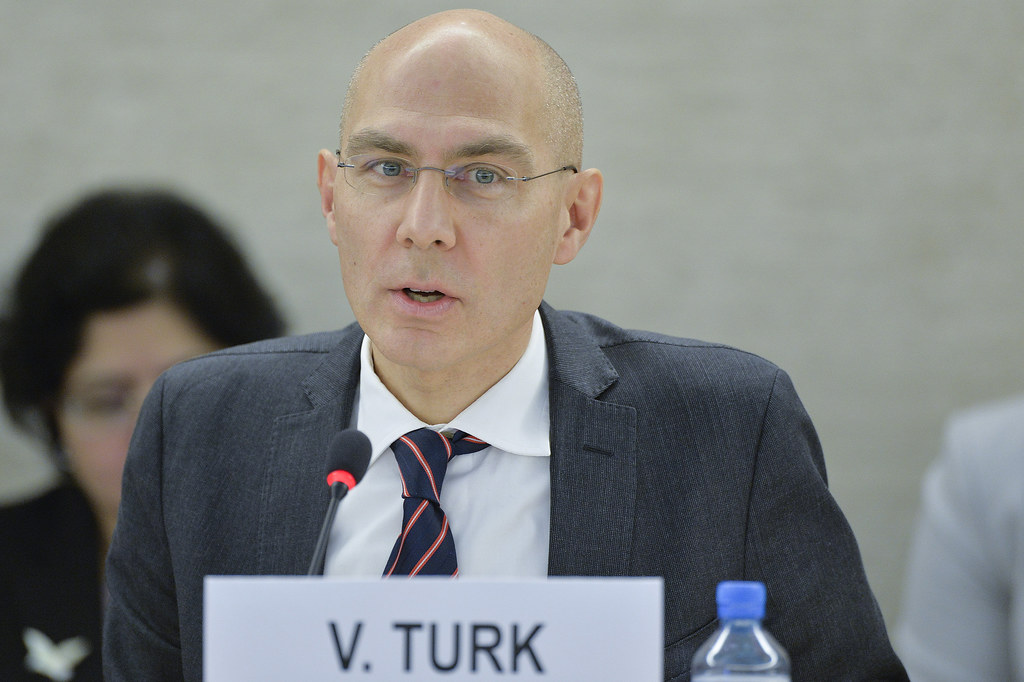
Pictured: U.N. human rights chief Volker Türk
Hundreds of bodies have been uncovered so far at Nasser Hospital in Khan Younis, central Gaza, and at Al-Shifa Hospital in Gaza City in the north, responding to the harrowing discovery the international community is calling for independent investigations to guarantee accountability for any violations of international law.
Gaza civil defense crews have so far recovered nearly 400 bodies from a mass grave at Nasser Hospital following the withdrawal of Israeli forces. Nasser Hospital is one of the primary medical facilities in Gaza, as of 18 February Israeli bombardment rendered the hospital nonoperational.
On Tuesday, the UN Human Rights Council stated that additional bodies were discovered at Al-Shifa hospital.
Al-Shifa Hospital was subject to a 2-week Israeli raid that ended earlier this month.
A spokesperson for the UN High Commissioner for Human Rights, Ravina Shamdasani said: "Among the deceased were allegedly older people, women and wounded, while others were found with their hands tied and stripped of their clothes"
U.N. human rights chief Volker Türk has called for independent and transparent investigations into the deaths. Türk added, "given the prevailing climate of impunity, this should include international investigators."
In a press release Amnesty International’s Senior Director of Research, Advocacy, Policy, and Campaigns, Erika Guevara Rosas has emphasized that the lack of access for human rights investigators to Gaza is obstructing "effective investigations into the full scale of the human rights violations and crimes under international law committed over the past six months."
“Mass grave sites are potential crime scenes offering vital and time-sensitive forensic evidence; they must be protected until professional forensic experts with the necessary skills and resources can safely carry out adequate exhumations and accurate identification of remains" she added.
Rosas continues, "Israeli authorities must ensure they comply with the ICJ ruling by granting immediate access to independent human rights investigators and ensuring that all evidence of violations is preserved."
Read more on Reuters, UN News, and Amnesty International.
